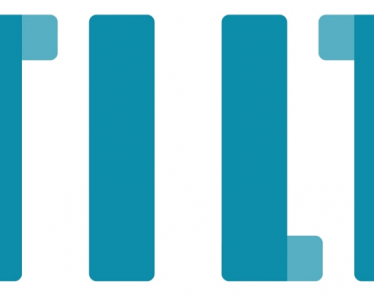
While choosing the right companies to invest in can be complicated, the process of buying and selling stocks doesn’t have to be. Canadian Exchanges may seem out of your reach as a US investor but we’ve got you covered.
There are a number of ways you can trade stocks, including through a financial institute, a financial adviser, or directly from the company you are interested in. There are also a number of stock exchanges around the world, from major exchanges like the New York Stock Exchange (NYSE), NASDAQ and the Toronto Stock Exchange (TSX) to alternative exchanges like the TSX Venture and the Canadian Securities Exchange (CSE).
The CSE, in particular, has received some major attention in recent years due to a spike in financing and a growing interest in cannabis companies. Let’s look at why the CSE is a good option for investors and how to trade stocks on the CSE.
Why Trade Stocks on the CSE?
The CSE, also known as the Exchange for Entrepreneurs, is a stock exchange that is owned and operated by CNSX Markets Inc. The exchange was launched in 2003 to provide a modern, efficient alternative for companies to gain access to the Canadian public capital markets.
The CSE started as a resource-based exchange and while it still has those roots, it has evolved to incorporate a variety of different companies.
As the cannabis industry came into its own in Canada in 2018, the CSE became a hub for US-related cannabis listings. The exchange now has more than 100 cannabis-related companies in Canada and the US, giving investors a good number of options to choose from.
Investors that want to take a hands-on approach to investing can purchase stocks and bonds directly through the CSE.
How US Investors Can Trade Stocks on the CSE
While most Canadian discount online brokerages are connected to the CSE, there is still limited access within the US, but some US brokers allow clients to open “international accounts” that let them trade directly on a foreign stock exchange.
If you are trading from the US, you will need to find a broker who is willing to facilitate trades on Canadian stock exchanges. You’ll also want to keep in mind that you’ll have to convert your currency into Canadian dollars before trading, so exchange rates come into play.
It is also important to note that, due to the implementation of the Canadian-U.S. Income Tax Convention, your international broker will automatically remove Canadian income tax contributions from your stock sales and dividends.
Choosing an Online Brokerage Platform
Whether you are an investor trading from Canada, the US or anywhere else you will need to hire a broker to facilitate you in buying and selling of stocks. Creating an account with a broker will give you the ability to trade stocks, bonds, ETFs, forex, options, futures, commodities,and mutual funds.
You can opt for a full-service broker, who charge a fee to facilitate stock trading and will help you develop a long-term financial plan. Another option is an online discount broker, which doesn’t give you advice like a full-service broker would but is a lot less expensive.
There are a number of online brokerage platforms out there that facilitate trades from the US. The fees associated with each online broker vary greatly, so you’ll want to do your research and shop around when searching for a brokerage.
Here are a couple popular options you might consider:
Questrade offers self-directed investing at a cost of $0.01 per share with a minimum of $4.95 (maximum of $9.95) as well as pre-built actively managed portfolios for a management fee of 25% per month. The company also offers market data packages, from free basic coverage to advanced data packages for $89.95 per month. It is free to open and close your account, but it’s important to be aware of things like inactivity and de-registration fees.
InteractiveBrokers is one of the most popular US brokers for international stocks. It offers both fixed and tiered pricing, meaning retail and professional investors can use the platform to minimize fees and maximize returns. The minimum balance required to open an account is $10,000 USD unless you are age 25 and under, in which case you’ll only need $3,000. The commission on Canadian trades is only $0.01 per share traded with a minimum commission of $1.00 CAD and a maximum of 0.5% of the trade value.
E*TRADE is a newer option that could appeal to high-frequency traders. This broker offers low-cost transactions and access to an expansive range of investments. E*TRADE features $0 stock, ETF and options trades, and around 9,000 mutual funds, including more than 4,400 no-load, transaction-free mutual funds. E*TRADE also offers managed portfolios and automated portfolio management services, along with a library of educational resources, making the broker a solid option for beginner investors and those looking for a hands-off experience. E*TRADE does unfortunately require a $500 minimum opening deposit and its annual fees for automated accounts are higher than some of its competitors. E*TRADE also raises its fees for options contracts for users making fewer than 30 trades per quarter.
How to Trade Stocks on the CSE
Once you have set up an account with a brokerage, you are ready to trade stocks on the CSE. Buying and selling stocks is referred to as placing an order and can be done in a number of different ways.
The two most common options are a market order, where the stock is bought or sold and the latest price, and a limit order, which is when you set a price limit for the highest price you are willing to pay for a stock or the lowest price you are willing to sell a stock at. A market order can be done during market hours and are instant transactions, while limit orders will not be executed unless that price is reached and expire at the end of the trading unless you have specified otherwise.
You can also choose to place a stop order, which is essentially an agreement to buy or sell a stock when it reaches a specific price. This type of order differs from a limit order because instead of specifying a maximum, you set a minimum price you’ll pay to buy or a maximum you’ll receive when you sell.
Another rarer option is a stop limit order which gives you the ability to set a stop price and a limit price for what you are willing to pay for a stock.
There are also trailing stop orders, which allow you to place an order and have the price dynamically adjust to ensure you get the highest return possible. These orders, as well as trailing stop limit orders, are typically used more often when selling and involve entering a trailing amount, which represents the spread from the current price to what you are willing to sell at. Instead of a set price, it’s a fluid price that is determined as a percentage of the current price.
As mentioned, market and limit orders are the most commonly used options. However, it is worth it to do your research on the risks and benefits of each option. Regardless of which type of orders you place, it is a good idea to store your money between trades and accumulate a small amount of interest in the meantime.
If you are planning to trade stocks on the CSE, or any other exchange, you want to start your journey with plenty of financial market research under your belt in order to mitigate risks. Buying and selling stocks is inherently risky, however, those who have a deeper understanding of the stock market are less likely to make common, avoidable mistakes.
Featured Image: Depositphotos © davidewingphoto












